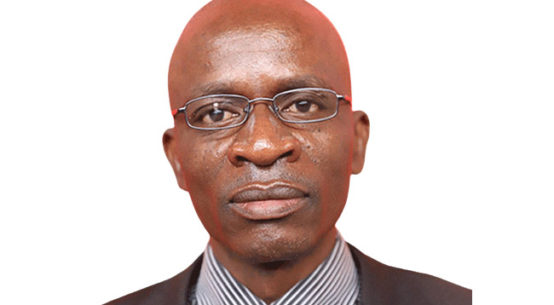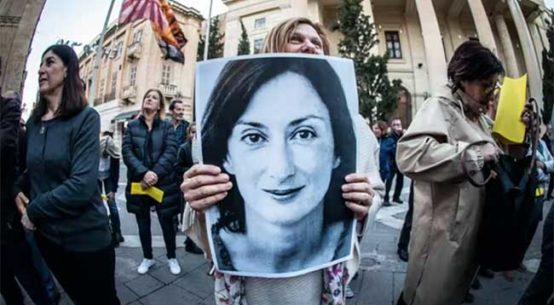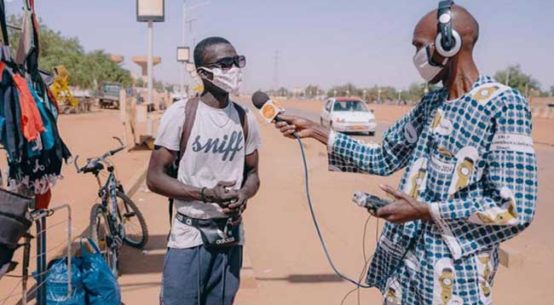
There is incessant increase in the number of abuse of media rights on the African continent including deaths of practitioners with DR Congo, Mali, and Zimbabwe, Guinea cited among the countries censuring and flouting the purveyors’ rights to disseminate news without duress.
The International Press Institute (IPI), a renowned watchdog, has raised alarm on the growing violations including death of media personnel and cites about 24 media right abuses in nine African countries.
A total 10 cases are censorship related and make prominence, contrasting the call to: Inform, Entertain and Educate the public.
Guinea has been cited as one of the countries perpetuating media violations with 75 percent cases of attacks on journalists and media houses, with police or security forces, representing 50 percent of the attacks they incite.
Last month, an insurgent group in the Sahel region, Mali, killed prominent journalist, Abdoul Aziz Djibrilla. His death sparked outrage from IPI which sought justice over the slaying of the reporter:
“I condemn the killing of Abdoul Aziz Djibrilla. I call on all actors to ensure journalists and media workers can safely undertake their vital work to inform populations. The perpetrators of this crime must be prosecuted, said Audrey Azoulay UNESCO Director-General
Two other journalists, Saleck Ag Jiddou and Moustaph Kone, working with Radio Coton d’Ansongo, were abducted by the same armed group. A fourth journalist, Harouna Attino, working with the radio station Alafia d’Asongo was also injured in the attack.
There were interruptions on the internet since 24 November in Conakry, the capital of Guinea, and its outskirts.
Social media platforms such as Facebook, Messenger, WhatsApp, and YouTube were reported to be inaccessible to the general public, the second time this year, IPI reported. Journalists and citizens resorted to using VPNs to disseminate and access information online.
The administration in Mali were reported to be behind the jamming of at least six independent media houses, mainly broadcasters, between 24-29 November this year.
In Burkina Faso, on 6 November, two journalists, Isaka Langani and Yacouba Ladji Bama, critical of the administration were conscripted by the military authority along with several civil society organization members and critics of the military government.
In Burkina Faso, on November 21, the authorities adopted a new legislation governing the national media regulatory body, the High Council for Communication (CSC). The new legislation modified the previous law under which the president of the CSC was elected by his fellow councilors.
Under the law, the Head of state has sweeping powers to choose the president of the media regulatory body, placing him/her under the direct control of the president.
In DRC, there has been detentions of various media houses with some journalists being forced into prison for unwarranted periods, fueling concerns that the majority media personnel might fear for their lives as they cover the 20 December elections in Africa’s 103 million populated African state.
The duo, Raphaël Ngoma Mabonzo of Radio Communautaire Muanda (RCM), a station broadcasting in Muanda, in the province of Central Kongo, was arrested and detained by the DRC intelligence service, National Intelligence Agency (ANR).
The journalist was presented to the office of the public prosecutor, in Muanda, and accused of disseminating information about a banned meeting of Augustin Matata Ponyo, a presidential candidate in the upcoming December 20 election. The journalist was, however, released on 10 November, a day after the incident.
On 8 November this year, investigative journalist, Stanis Nujakera, was arrested by the DR Congo authorities at the airport in Kinshasa, by DRC police.
He was later charged and taken before the court on among other offences, “forgery of documents, falsification of state seals, propagation of false rumors”and“ transmission of erroneous messages contrary to the law”.
Despite several applications for provisional release, he remains in detention with the legal authorities denying him release on four occasions. Legal experts fear if convicted, Bujakera faces up to 10 years in prison.
The Committee for the Protection of Journalists (CPJ) has however raised its voice over the ongoing detentions of media personnel in DR Congo and that of Stanis Bujakera.
“The ongoing detention and prosecution of journalist Stanis Bujakera is an egregious violation of press freedom in the DRC, and the repeated rejection of Bujakera’s requests for provisional release only adds insult to injury,” Angela Quintal, CPJ’s Africa program coordinator, said.
“Authorities must not further deepen the injustice of Bujakera’s prosecution and should approve his lawyers’ request to give a second expert opinion on the evidence presented against him.”
As the DRC’s December 20 general election approaches, there is growing fear of increased attacks against journalists. DR Congo recorded 10 threats to press freedom in the DRC in September 2023 alone, a situation which has riled IPI and the watchdog wants fair play.
‘’Authorities in DRC should cease the legal harassment of journalist Bujakera, drop all charges against him, and release him”, said Nompilo Simanje, IPI Africa Advocacy Lead.
“The circumstances surrounding his arrest and prosecution signal the authorities’ intolerance of critical journalism. His continued detention has a chilling and self-censorship effect on the media and journalists as the country gears towards its general elections in December’’.
‘’We call on the authorities in DRC to create an enabling environment for media freedom which guarantees the safety of journalists and access to public interest information, particularly around the upcoming elections.’’ She adds
IPI demands the authorities to drop all charges against Bujakera and ensure that journalists working in the country are able to do their work without fear of reprisals.
Meanwhile, election preparations in DR Congo are heightening with over 21-candidates challenging incumbent, Felix Tshisekedi.
Tshisekedi, son of veteran opposition leader Etienne Tshisekedi,, a towering figure in Congolese politics who founded the Union for Democracy and Social Progress.
He entered office in 2019 after 18 years of Joseph Kabila, a military man-who was himself catapulted to power after his father was assassinated at the height of the country’s civil war in 2001.
Among the 21 opposition candidates vying for the Presidency include businessman and for Katanga province governor, Moise Katumbi, leader of Together for the Republic.
Katumbi-son of a Greek-born Sephardic Jew, initially barred from standing in the last election because of his mixed parentage –is viewed as Tshisekedi’s main challenger.




